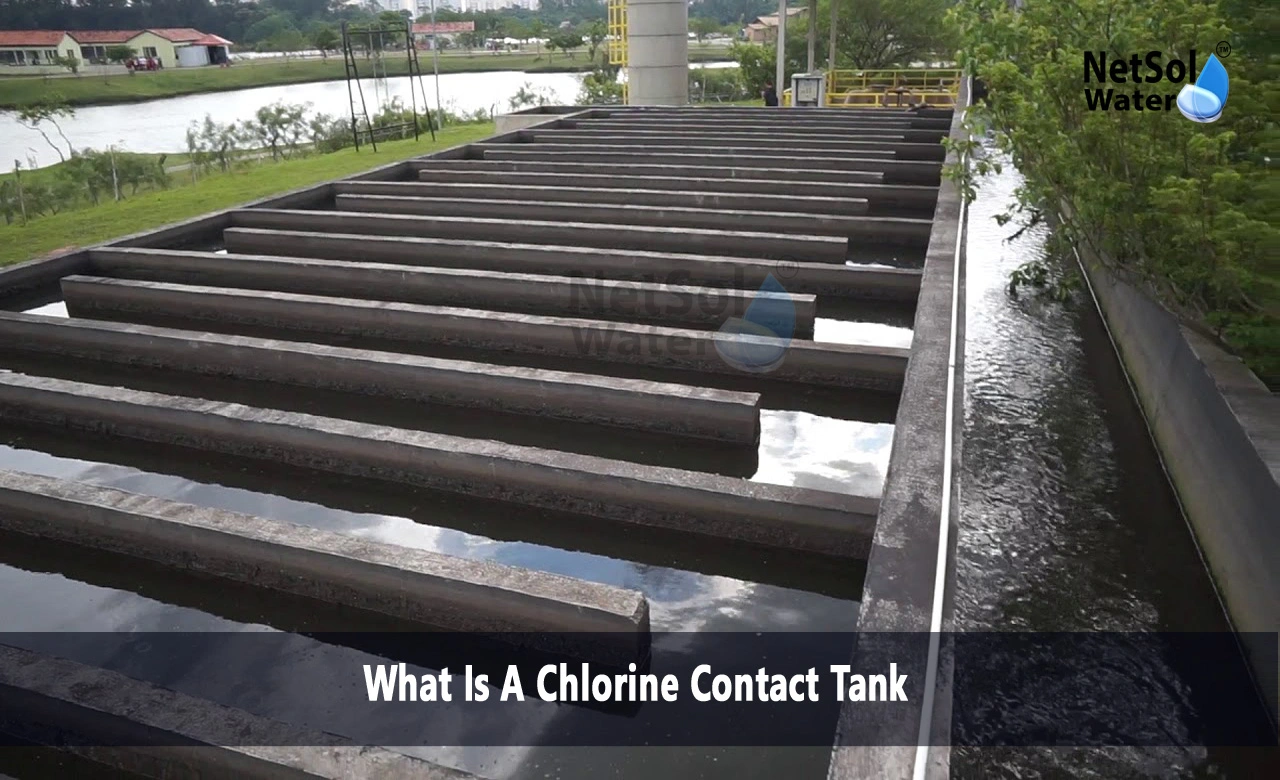What Is A Chlorine Contact Tank (CCT)?
The chlorine contact tank serves as the final step in water treatment. This specialized tank ensures water receives proper disinfection before reaching users. The tank design creates ideal conditions for chlorine to eliminate harmful organisms. This process protects public health through consistent disinfection.
Water treatment facilities use chlorine contact tanks to maintain specific contact time between chlorine and water. This contact time allows chlorine to work effectively against pathogens. The tank size and design help control water flow. This creates the right conditions for thorough disinfection.
We will explore how chlorine contact tanks function in water treatment. You will learn about tank design operational requirements and maintenance needs. The information helps treatment plant operators engineers and water quality professionals. Understanding chlorine contact tanks leads to better disinfection results and safer water for communities.
Design Elements of Chlorine Contact Tanks
The design of chlorine contact tanks affects disinfection success. Every feature serves a specific purpose. These design elements work together to create effective treatment conditions.
Tank Configuration
Contact tanks use special designs to control water movement. Baffles inside the tank create a longer flow path. This ensures proper contact time between chlorine and water. The design prevents short-circuiting which could lead to incomplete disinfection.
Flow Control Features
The tank controls water speed and direction. Inlet structures spread water evenly across the tank. Outlet structures collect treated water smoothly. These features maintain consistent flow patterns. Good flow control improves disinfection results.
Size Considerations
Tank size matches treatment needs. The volume provides enough contact time. This depends on flow rate and required disinfection levels. Proper sizing ensures complete treatment under all conditions.
Operational Requirements
Running a chlorine contact tank needs careful management. Different factors affect performance. Understanding these factors helps create better operational strategies.
Contact Time Management
Contact time determines disinfection success. Operators monitor flow rates carefully. They adjust chlorine doses based on flow. This creates consistent disinfection results. Good contact time management protects water quality.
Chemical Dosing Control
Proper chlorine dosing ensures effective treatment. Automatic systems measure chlorine levels. They adjust doses as needed. This maintains target disinfection levels. Good dosing control prevents over or under treatment.
Performance Monitoring
Regular testing shows how well tanks work. Operators check chlorine levels frequently. They monitor water quality parameters. This information guides operational decisions. Good monitoring prevents treatment problems.
Maintenance and Troubleshooting
Chlorine contact tanks need regular care. Different issues can affect performance. Quick problem solving maintains treatment quality.
Regular Maintenance Tasks
Maintenance keeps tanks working well. Operators clean tanks periodically. They check equipment condition. This prevents unexpected problems. Good maintenance extends tank life.
Common Problems
Various issues can affect tank performance. Short-circuiting reduces contact time. Equipment problems affect dosing accuracy. Understanding these issues speeds up solutions. Good problem-solving skills prevent extended issues.
Safety Considerations
Safe operation protects workers and water quality. Proper procedures prevent accidents. Safety equipment protects workers. This creates a secure work environment. Good safety practices prevent injuries.
Maximize Your Water Treatment Results
Understanding chlorine contact tanks helps create better disinfection results. Proper management ensures consistent water quality. The right approach depends on your specific needs.
Want to improve your chlorine contact tank performance? Our experts can help optimize your disinfection process. Contact us today for a professional assessment of your system. We will show you how to achieve better results from your chlorine contact tank.
To explore customised commercial RO plants, Industrial RO plants, ETP or STP solutions for your needs in your areas and nearby regions, Contact Netsol Water at:
Phone: +91-965-060-8473, Email: enquiry@netsolwater.com



